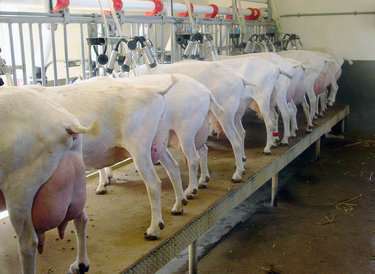Hopes to increase his herd to 5,000 goats
By Diego Flammini
Assistant Editor, North American Content
Farms.com
If Pieter DenHartogh reaches his goal then he could have the largest goat-farming operation in Canada.
The Norfolk County farmer wants to increase his operation from 1,000 head to 5,000 by summer 2017.
To do that, DenHartogh will have to build an 188,000 square-foot facility to house the goats; the total investment of the project is estimated at around $13 million and DenHartogh said he’s got investors lined up.
But while making his pitch to council, he said the $79,000 for a building permit could slow things down, and asked council to waive a portion, or all, of the permit fees.

“I’m asking for a little help from the community that I’ll be giving a lot back to in the future,” he said according to the Simcoe Reformer, adding the operation will pay taxes and provide business for grain, hay and straw providers.
Council didn’t like the idea of waiving the fees, fearing it could set a precedent for similar operations that want their fees taken care of.
DenHartogh said he’s also working with GayLea on the expansion and that buyers for Ontario goat milk are everywhere in the province.
He said his operation would also include an agri-tourism opportunity for the public who want to learn more about goats.